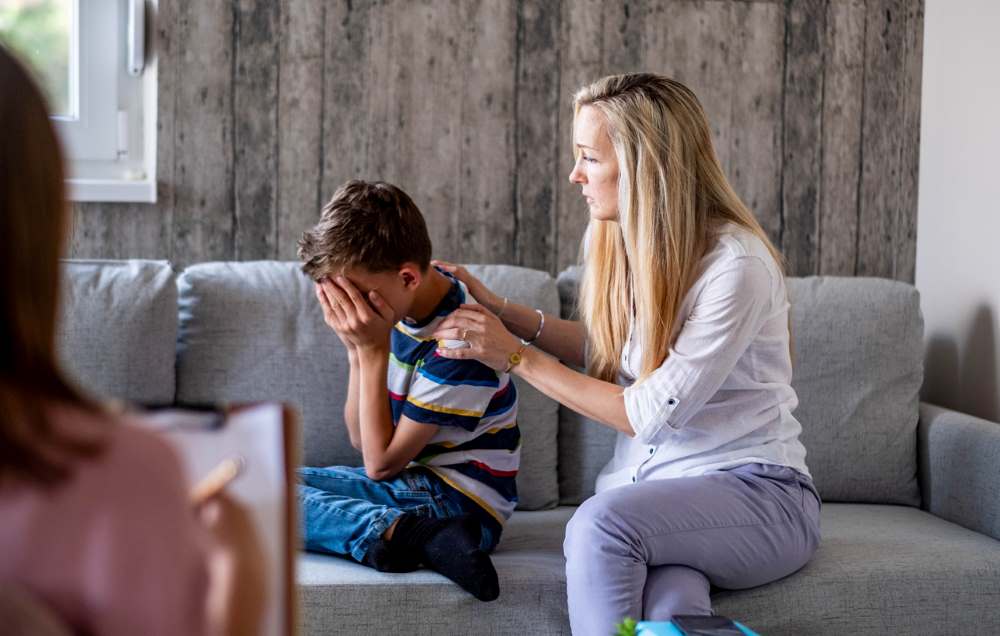
The aftermath of a car accident can be a distressing time for any person, but it can be particularly traumatic for a child. They may have trouble expressing their emotions or voicing that they need help. As a parent or guardian, it is crucial to act calm, provide support, and help your child feel safe again.
Your approach may differ depending on your child’s age and response to the collision, the severity of the crash, and various other factors. According to Josh Fogelman, a car accident lawyer and founding partner at FVF Law, “Making informed decisions with the help of an experienced attorney is the best way to ensure the best outcome for your case.” Furthermore, he has provided some information that may assist you in navigating this challenging situation and helping your child cope with their car accident-related trauma.
Tips on How To Help Your Child Cope With Trauma After a Collision
Seeking prompt medical treatment for any physical injuries your child suffered is essential. However, you must also help them deal with the emotional distress they might feel, including fear, anxiety, depression, and any other mental effects.
According to psychologists and other mental health experts, here’s how you can help your child emotionally after a car accident.
Get Back to a Routine
Many people think they should take their kids out of school or change their schedule in the wake of a traumatic event. However, when something unexpected happens, children typically benefit from returning to their normal activities and routine. It provides stability and reminds them that things will get better.
You might consider lowering expectations for certain things, like household chores – especially if your child suffered any injuries. However, it’s good to get back to as normal as possible to show them that people can move forward after a stressful situation.
Don’t Act Overprotective or Anxious
Your child will look to you for guidance and reassurance after a car accident. If you act overprotective or anxious, it might send a message that they aren’t safe.
There’s a fine line between giving your child extra love – such as hugs or cuddles – and voicing your worries over the accident. You might inadvertently make them stress over things they hadn’t thought about or make them feel like a danger is still present.
Talk About the Accident and Encourage Honest Discussions
Follow your child’s lead when it comes to discussing the collision. Allow them to ask questions and provide straightforward and honest answers. Let them know that any feelings of stress or worry are normal after such an experience.
If they seem like they don’t want to discuss the accident, don’t push them. You can tell them that you’re available to listen and discuss it whenever they’re ready. You want to provide a safe space where they can voice their concerns when they’re emotionally able to.
If anyone was injured or died due to the car accident, encourage discussions with the family. Allow everyone to voice their feelings in a safe, honest environment.
Acknowledge Your Child’s Feelings
Understand that everyone copes with stressful and traumatic situations in different ways.
Your child may want to spend more time with you, relatives, or friends. Be supportive of their wishes, and explain that their feelings and how they deal with them are valid. Offer to play their favorite game or engage in other hobbies they enjoy.
Just because your child wants to spend more time alone doesn’t mean their coping mechanisms are wrong.
Monitor the situation and emphasize that you’re there for support anytime they need it.
Take Care of Yourself
You need to be in a mental space to provide a support system for your child. You can’t do that if you’re struggling with your own emotional trauma. Don’t minimize your feelings and become overwhelmed.
Seek support from family members and friends. Consider joining a support group or online community to talk about your feelings. Maintain a good diet and exercise routine.
Look for Warning Signs That Your Child Is Struggling
You know your child better than anyone else. If their emotional symptoms last for months and don’t seem to diminish, that may be a warning that something deeper is going on.
Children may exhibit various warning signs, depending on their age and other factors:
-
Ongoing nightmares about the accident
-
Sleep deprivation
-
Trouble concentrating in school
-
Constantly feeling unsafe
-
Behavioral problems or changes in behavior
-
Regressive behaviors, such as bedwetting
-
Irritability or extreme mood swings
-
Thoughts of self-harm or suicide
Look for these and other signs that your child is struggling to cope with the crash.
Seek Professional Help If You Need It
As mentioned, everyone deals with trauma in their own way. That said, monitor your child and seek counseling or professional help if required. And, if you need help, get it – even if for your child’s sake.
A Car Accident Lawyer Can Help You Recover Compensation for the Physical and Emotional Effects of a Crash
A legal claim may be the last thing on your mind when you’re helping your child cope with the aftermath of a collision. However, you may need financial support to pay for medical bills, lost income, PTSD treatment, psychological help, and more.
A car accident attorney will help you pursue a claim against the at-fault party to recover compensation for your family’s economic and non-economic damages.



























